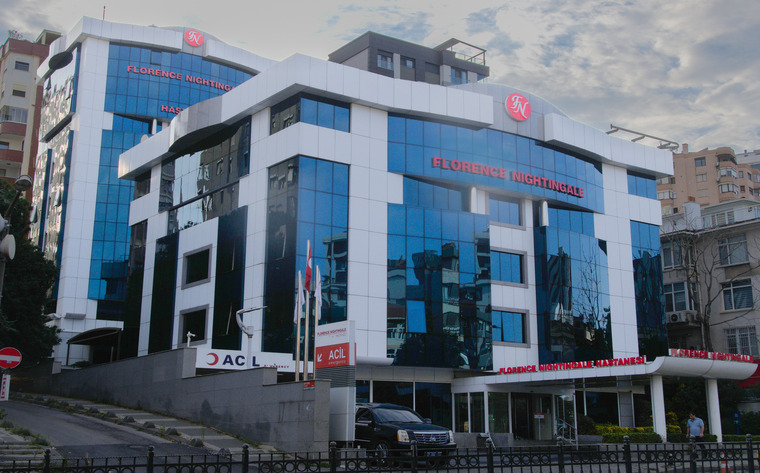
What is the Medical Oncology Department and What Diseases Does It Cover?
Medical oncology is a branch of medicine that specializes in cancer treatment. This department deals with the diagnosis and treatment of cancer and cares for patients with cancer. Medical oncology doctors fight cancer using a variety of methods, including chemotherapy, immunotherapy, hormone therapy, and targeted therapies.
About the Medical Oncology Department
Medical oncology plans and implements cancer treatment by adopting a multidisciplinary approach. Specialists working in this department create personalized treatment plans by considering the general health status of patients. The medical oncology department provides support to patients at every stage of cancer and helps maintain morale and motivation during the treatment process.
Who is a Medical Oncologist and What Are Their Duties?
A medical oncologist is a doctor who is trained in cancer treatment. Their duties include diagnosing cancer, determining appropriate treatment methods, and managing the treatment process. In addition, managing side effects that patients experience during treatment and providing guidance to patients are also among the responsibilities of medical oncologists.
What Diseases Does Medical Oncology Cover?
Medical oncology is a branch of medicine that covers the diagnosis and treatment of various types of cancer. Below are the main types of cancer addressed by medical oncology:
Breast Cancer
Breast cancer is the result of uncontrolled growth of cells in breast tissue. It is a type of cancer that is highly treatable with early diagnosis and treatment.
Lung Cancer
Lung cancer is one of the most common and deadly types of cancer worldwide. Smoking is one of the most important risk factors for this cancer. Early diagnosis can increase treatment success.
Colon and Rectum Cancer (Colorectal Cancer)
Colorectal cancer is a type of cancer that begins in the lining of the colon or rectum. Regular screening tests can help detect this cancer in its early stages.
Prostate Cancer
Prostate cancer is one of the most common types of cancer in men. It develops in the prostate gland and is usually slow-growing. Early diagnosis has a high chance of being cured.
Stomach Cancer
Stomach cancer is a type of cancer that develops in the lining of the stomach. It is more common to be diagnosed in advanced stages because it usually does not cause symptoms in the early stages.
Liver Cancer
Liver cancer is a type of cancer that begins in the liver cells. Liver cirrhosis is a major risk factor for the development of this cancer.
Pancreatic Cancer
Pancreatic cancer is a type of cancer that begins in the pancreatic tissue. It can be difficult to treat because it usually presents symptoms in the late stages.
Kidney Cancer
Kidney cancer is a type of cancer that begins in the kidney tissue. It is characterized by abnormal growth of kidney cells.
Skin Cancer (Melanoma and Non-Melanoma)
Melanoma is a type of cancer that begins in the pigment-producing cells of the skin and is more aggressive. Non-melanoma skin cancers are more common and are usually treatable.
Lymphoma
Lymphoma is a type of cancer that begins in white blood cells called lymphocytes. There are two main types: Hodgkin lymphoma and non-Hodgkin lymphoma.
Leukemia
Leukemia is a type of cancer that begins in the bone marrow and blood cells. There are different types: acute and chronic.
Ovarian Cancer
Ovarian cancer is a type of cancer that begins in the ovaries. It usually presents symptoms in advanced stages, making early diagnosis difficult.
Brain Tumors
Brain tumors are cancers that begin in the brain or spinal cord. They can be either benign or malignant.
Bladder Cancer
Bladder cancer is a type of cancer that begins in the bladder tissue. The most common symptom is blood in the urine.
What are Medical Oncology Examinations?
Medical oncology exams are comprehensive examinations performed to evaluate patients' cancer status. These exams are performed to determine the patient's general health status, the spread of cancer, and response to treatment. These exams use methods such as physical examination, blood tests, imaging methods, and biopsy.
What Methods Are Used in Medical Oncology Treatments?
Various methods are used in medical oncology treatments. These methods include chemotherapy, immunotherapy, hormone therapy and targeted therapies. Each treatment method is selected and applied according to the type of cancer and the general health of the patient. Medical oncology specialists manage the side effects of patients during the treatment process and update treatment plans as necessary.
When Should You Go to the Medical Oncology Department?
People who show signs of cancer should see a medical oncology department. In addition, patients who have previously been diagnosed with cancer and are undergoing treatment should regularly meet with medical oncology specialists. Cancer screenings and check-ups for early diagnosis are also performed in the medical oncology department.
What is Done During a Medical Oncology Examination?
During a medical oncology examination, the patient's health status is evaluated in detail. Various tests such as physical examination, blood tests, and imaging methods are performed. In addition, the patient's treatment plan is reviewed and information is obtained about the problems encountered during the treatment process. During the examination, patients' questions are answered and information is provided about the treatment process.







